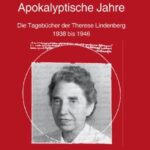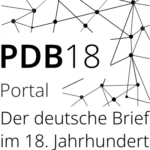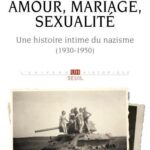 AEMI: Association of European Migration Institutions and Ruhr Museum (Web)
AEMI: Association of European Migration Institutions and Ruhr Museum (Web)
Time: 08.-10.10.2025
Venue: Ruhr Museum, UNESCO World Heritage Zollverein, Essen
Proposals by: 16.05.2025
Migration is young. In 2023, the proportion of migrants in the 20-49 age group was significantly higher than that of nationals in the EU as a whole. the group of young migrants is characterized by great diversity. Youth migration is driven by divers motivations ranging from humanitarian needs such as fleeing armed conflict, insecurity and human rights violations up to seeking personal and professional advancement. Educational opportunities such as studies abroad, gaining international work experience but also employment prospects for skilled and unskilled male and female workers also play a significant role in youth migration. Not forgetting love as an important reason for migration in cross-national partnerships. How do the experiences of young migrants differ from those of other age groups? What are the particular challenges and opportunities of young migrants in the past and present?
Migration has also a long history in Europe. Religious wars, the formation of nation states, emigration overseas, world wars, flight, expulsion and the labor migration in the 19th and 20th centuries have led to major migratory movements. In some regions, we are talking about the fourth or fifth generation of migrants. But how do the experiences and challenges differ between the generations? And what are the implications of the generational concept? When does the migration background end?
History from a gender perspective have intensified in recent years, but are still underrepresented overall. This applies to a greater extent to the history of migrant women. What special experiences do female migrants have? What effects do the process of migration, orientation and life in a new country have on women’s roles in the family and at work? What effects do they have on women’s identity? How do the respective legal, economic and social power relations affect the relationship between the sexes? Read more and source … (Web)

 Referat Genderforschung | Studienservicestelle Gender Studies der Univ. Wien; Bojan Bilic
Referat Genderforschung | Studienservicestelle Gender Studies der Univ. Wien; Bojan Bilic  CA 23149 Democratization at stake? Comparing Anti-Gender Politics in CEE and NME countries (Antigender-Politics): Isabel Heinemann, Univ. of Bayreuth and Heidi Hein-Kircher, Martin Opitz-Library/Ruhr-Univ. Bochum
CA 23149 Democratization at stake? Comparing Anti-Gender Politics in CEE and NME countries (Antigender-Politics): Isabel Heinemann, Univ. of Bayreuth and Heidi Hein-Kircher, Martin Opitz-Library/Ruhr-Univ. Bochum  Reihe „Zweiter Weltkrieg. Ein Ö1 Schwerpunkt aus Anlass der 80. Wiederkehr des Endes des Zweiten Weltkriegs“
Reihe „Zweiter Weltkrieg. Ein Ö1 Schwerpunkt aus Anlass der 80. Wiederkehr des Endes des Zweiten Weltkriegs“ Institut für Neuere Geschichte und Zeitgeschichte, Johannes Kepler Universität Linz (JKU)
Institut für Neuere Geschichte und Zeitgeschichte, Johannes Kepler Universität Linz (JKU)  DFG-Projekt „Der deutsche Brief im 18. Jahrhundert“, BBAW Berlin/IZEA Halle/ULB Darmstadt (Berlin-Brandenburgische Akademie der Wissenschaften)
DFG-Projekt „Der deutsche Brief im 18. Jahrhundert“, BBAW Berlin/IZEA Halle/ULB Darmstadt (Berlin-Brandenburgische Akademie der Wissenschaften)  FWF ESPRIT project “Mining the Earth, Roaming the Globe” (PI: Gabriele Marcon): Gabriele Marcon and ERC project SCARCE (PI: Sebastian Felten): Claire Sabel
FWF ESPRIT project “Mining the Earth, Roaming the Globe” (PI: Gabriele Marcon): Gabriele Marcon and ERC project SCARCE (PI: Sebastian Felten): Claire Sabel  The international research network on „Military, War, and Gender/Diversity“ (MKGD): MKGD Online Research Colloquium
The international research network on „Military, War, and Gender/Diversity“ (MKGD): MKGD Online Research Colloquium